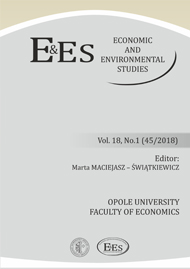Dematerialised and re-dematerialised economy – 3D printing as a key technological and environment-friendly innovation
Dematerialised and re-dematerialised economy – 3D printing as a key technological and environment-friendly innovation
Author(s): Łukasz MamicaContributor(s): Marta Maciejasz-Świątkiewicz (Editor)
Subject(s): Economy, Energy and Environmental Studies
Published by: Uniwersytet Opolski
Keywords: re-localisation; industrial revolution; creative destruction; 3D printing; technological innovation
Summary/Abstract: The development of 3D printing enables the process of direct transfer of ideas (understood as digital vectors) into physical objects using only one universal device. Later these objects could be milled and the same material reused, allowing ideas for effective re-materialisation and de-materialisation done by individual consumers who become producers. New goods could be adjusted by consumers to their individual preferences as it was in the preindustrial craft era. A process of re-localisation of de-localised production from low paid labour countries to developed ones will be observed with spatial distribution. This new order could be named re-de economy. Expiration of key patents that protected 3D technologies between 2014 and 2016 will affect the spread of these new order consequences. The article also presents an analysis of 217 students’ opinions collected in selected countries (Hungary, Italy, Lithuania, Poland, South Africa, Sweden and Ukraine) regarding their attitude to this technology.
Journal: Economic and Environmental Studies
- Issue Year: 18/2018
- Issue No: 1 (45)
- Page Range: 265-291
- Page Count: 26
- Language: English

